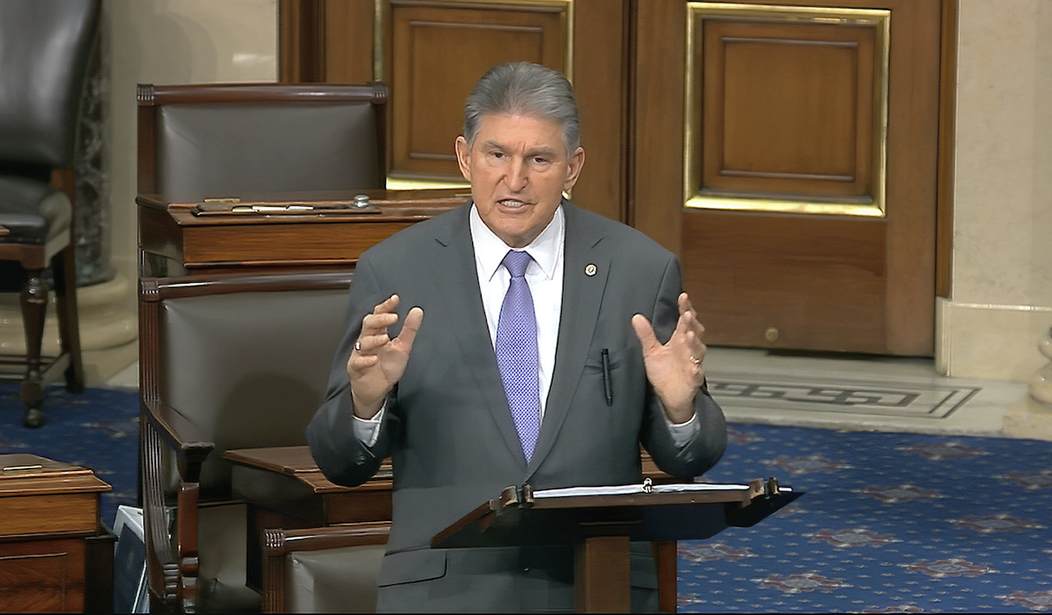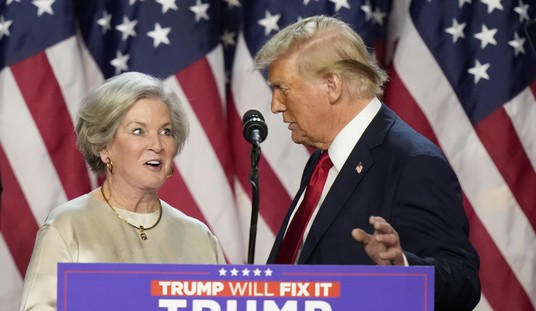There's a reasonable chance -- though it's not a fait accompli -- that Democrats will control the presidency, the Senate and the House after the November elections. This would be their first crack at unified control of the federal government since 2009 and 2010, which resulted in Obamacare. Should they again control these levers of power starting in 2021, what would they do with them? We've written about the possibility of Senate Democrats eliminating the legislative filibuster, which they've described as sacrosanct in the past, which could empower them to do things like pass 'progressive' legislation on issues like healthcare, immigration, guns, and elections. It would also pave the way for radical, institution-altering power-grabs such as adding states (and therefore Senators) to the union, and seats to the Supreme Court. As we've discussed, Joe Biden was recently opposed to the latter scheme, but lately, he and his pro-court-packing running mate have been ducking the question. Here's Kamala Harris, who rarely takes questions, following Biden's lead in refusing to address it:
The word "clearly" does not belong in this answer
— Zach Parkinson (@AZachParkinson) September 29, 2020
It's a simple yes or no question: do you, or do you not, support court packing
Biden and Harris refuse to tell the American peoplepic.twitter.com/IIx8hmRnPX
For what it's worth, multiple polls taken on this question in recent days have shown that only a small fraction (less than a third) of the American public favor packing the Court with new seats. But public opinion didn't stop Democrats from ramming through Obamacare over strong public objections -- including the election of a Republican Senator in Massachusetts -- last time they held full power. If they have the votes to strike major blows for their agenda, and to consolidate their power, there's a strong chance they'll take seize the moment, even if it's unpopular. Chuck Schumer has threatened that all options would be on the table, and some previous (very recent!) supporters of maintaining the filibuster appear to the 'evolving.' Would Democrats go thermo-nuclear if they win a simple majority in the Senate? It seems as though the center of gravity within their caucus is moving in that direction, but at least one more moderate Democrat is reaffirming that he's a hard no on some of these proposed adventures:
“That’s not something that I would support. I can't support that” Democratic Sen. Joe Manchin says when asked about expanding the Supreme Court https://t.co/pQjrvWF88P #CNNSOTU pic.twitter.com/tVGM59zR9a
— CNN Politics (@CNNPolitics) September 27, 2020
What's interesting about this answer is that it sounds like pretty strong rejection of not just court-packing, but of ending the filibuster, too. He said he wouldn't vote for anything that would seriously diminish the need for bipartisanship and compromise in the Senate. I'd note that Joe Manchin is the only still-sitting Democratic Senator who voted against Harry Reid's 'nuclear option' in 2013. The other two dissenters have since retired or been retired by voters. Another Senate Democrat who has come out against court-packing is Arizona's Kyrsten Sinema, a freshman member -- and California's Dianne Feinstein has enraged the Left by signaling opposition to nuking the legislative filibuster, which would preclude various other power-grabs.
But Feinstein eventually supported Reid's scheme, so I'm not sure she can be counted on to stick to her guns -- just as I'm skeptical that a slew of current Democratic Senate challengers sounding reticent about court-packing wouldn't eventually go along with the Schumer program if they get elected. Republicans need to be arguing strenuously to voters that unified Democratic control is far too risky to try. Meanwhile, Manchin and another Democratic Senator are admonishing their colleagues to avoid another Kavanaugh disgrace, which wound up contributing to costing their party upper chamber seats in the 2018 midterms:
Sen. Joe Manchin (W.Va.), the only Democrat who voted to confirm Kavanaugh in 2018 and went on to win reelection that year in a state that Trump carried by 42 points in 2016, said he hopes the Senate avoids a Kavanaugh-type redux. “I hope they do. I would hope all my colleagues … have a civil, have a really professional, decent, honorable, respectable hearing, that’s all. And get to the points,” he said. Manchin called the bruising Kavanaugh confirmation fight, which erupted into controversy after allegations from a woman that the nominee sexually assaulted her when the two were in high school, a “fiasco.” “That vote cost, I think, a few of our colleagues their jobs,” he said...Sen. Jon Tester (D-Mont.), who narrowly survived his 2018 reelection race in a state Trump carried by 20 points in 2016, said his numbers dipped during the height of the battle over Kavanaugh. Asked whether Democrats need to be more disciplined in their approach to Barrett, Tester said, “Yeah, I do.”
Tester narrowly survived his Kavanaugh vote, but he's always been more partisan than Manchin. He may be saying some of the right things, but when it comes down to it, he's a Democratic team player. And he's already shifting his rhetoric on the filibuster, while trying to pretend that he's not:
Montana senator Jon Tester on nuking the filibuster in 2019 vs. Tester on the filibuster in 2020: https://t.co/zgblUZLT4O pic.twitter.com/OnFRc9kZFc
— John McCormack (@McCormackJohn) September 23, 2020
In November 2019, Montana’s Democratic senator was asked if there were any circumstances under which he could see himself voting to get rid of the Senate’s 60-vote hurdle for legislation. “Nope,” Tester told National Review. But on Tuesday of this week, Tester opened the door to the so-called “nuclear option,” which would allow the Senate to pass legislation with a simple majority. “We’ll see what happens in the election, and we’ll see what happens with, you know, potential obstruction,” Tester told National Review.
The only solid safeguard against huge Democratic overreach is Senate Majority Leader Mitch McConnell -- which means winning back Alabama, then defending seats in places like Alaska, Arizona, Colorado, Iowa, Georgia, Maine, Montana, North Carolina, South Carolina, and Texas. I'll leave you with this, which may be fool's gold (this survey is definitely an outlier), but James is an impressive candidate worthy of support:
Recommended
#MIsen:
— Political Polls (@Politics_Polls) September 29, 2020
James (R) 47%
Peters (D-inc) 47%@trafalgar_group, LV, 9/23-25https://t.co/L6cC5NvgY8

























